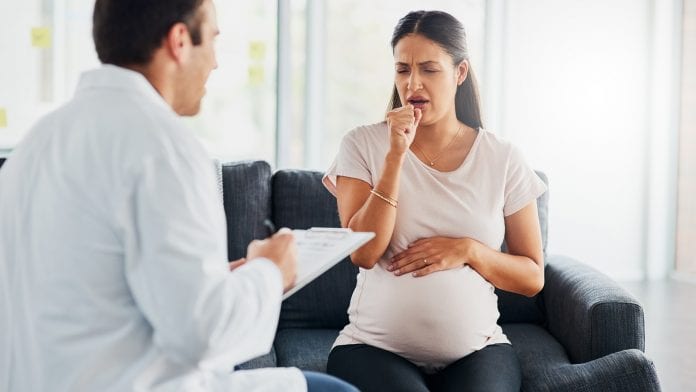
New research has shown that despite whooping cough being highly contagious and serious for new-born babies, up to one third of women in the UK are not vaccinated against the illness.
Led by the University of Bristol, the research sets out to understand why pregnant women are not being vaccinated against whooping cough and how delivery and uptake of vaccines can be improved by maternity services.
Pregnant women are usually vaccinated against the illness in order to protect their child until they are old enough to have it themselves. The vaccine is offered at 20 weeks of pregnancy, however, vaccination rates are highly variable across the country and women from ethnic minority backgrounds are less likely to be vaccinated. The reasons for these inequalities are currently unknown.
Understanding uptake and barriers
The research, which was funded by the National Institute for Health Research (NIHR), will examine national GP records to see what characteristics could predict whether a pregnant woman is vaccinated, and then link mothers’ and children’s records to investigate the relationship between rates of vaccination in mothers and their children.
Study lead, Dr Emma Anderson, Research Fellow and Health Psychologist in the Bristol Medical School: Population Health Sciences (PHS), said: “According to the World Health Organization, vaccine hesitancy is a top ten global health threat. We do not know if mothers who are not vaccinated in pregnancy are less likely to vaccinate their children. Improving pregnancy vaccination rates may increase child vaccine rates.
“I hope this research will help increase the number of pregnant women receiving the whooping cough vaccine and inform other mother and child vaccine programmes. Finding ways to maximise the effectiveness of vaccination programmes is even more important in the wake of COVID-19. Tackling inequality is vital so that everyone can be protected.”
The study will use a mixed methods approach to identify barriers and facilitators to the delivery of the whooping cough vaccine in maternity services and the barriers and facilitators to uptake of the vaccine in women.
Dr Anderson will then produce recommendations to help increase the number of pregnant women receiving the whooping cough vaccine and to inform other mother and child vaccine programmes.









